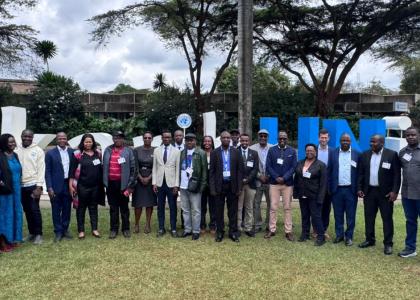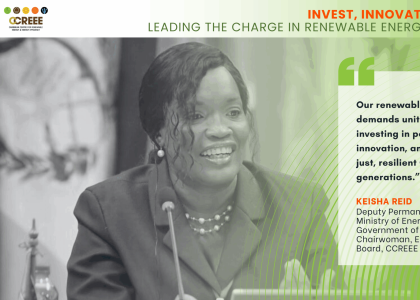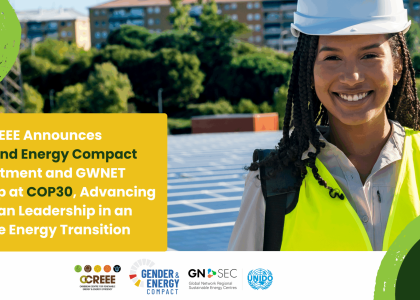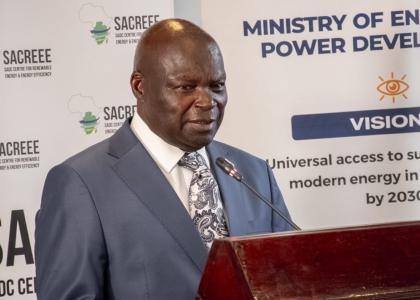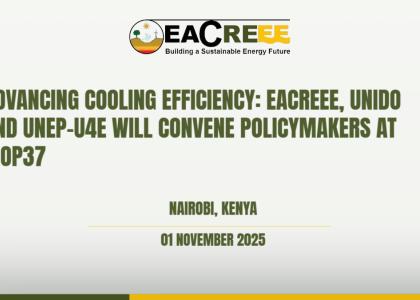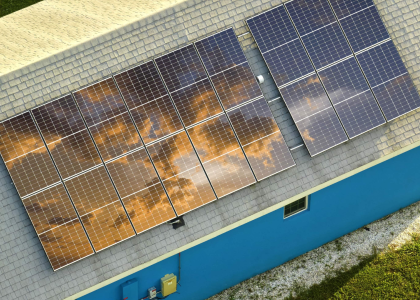Praia, December 2011
PRAIA, 05 December 2011 - The ECOWAS Regional Centre for Renewable Energy and Energy Efficiency (ECREEE), the United Nations Industrial Development Organization (UNIDO), the International Industrial Biotechnology Network (IIBN) and QUINVITA, a global industrial crop technology and knowledge provider for Jatropha, have launched a major strategic study on the potential for sustainable production of novel bio-energy crops in the ECOWAS region.
A cooperation agreement was signed by Mr. Mahama Kappiah, Executive Director of ECREEE and Mr. Henk Joos, Chief Executive Officer of QUINVITA, at the margins of the OECD West Africa Club Forum “West Africa and Brazil: Addressing Renewable Energy Challenges”, held in Praia, Cape Verde, from 5 to 6 December 2011. The strategic study will:
- Assess the potential for increased food production and utilization of non-food/feed residue/waste for bio-energy production from selected food crops,
- Identify ‘go’ and ‘no-go’ regions for 5-8 novel bio-energy crops within the 15 ECOWAS countries, taking into account available land for agriculture, forestry and other environmental impacts,
- Identify 3 potential pilot projects for specific regions in ECOWAS countries with a potential for sustainable production of 10,000-15,000 hectares of a specific bio-energy crop, and
- Provide a sustainability assessment of potential projects taking into consideration social, economic and environmental aspects of the bio-energy crops and their integration with food production, social and environmental factors.
“ECREEE undertakes this strategic study as a very important move towards a realistic and focused assessment of novel energy crops for the ECOWAS region. This is an essential first step shaping the direction that the region takes towards sustainable and viable project development in this area. Energy activities should under no circumstances lead to competition with food production but rather enhance it in the ECOWAS region. We will strive to combine the scientific, technical and financial resources of the different partners to strengthen the capacities in ECOWAS to assess the sustainability and feasibility of such energy crop projects. In this regard ECREEE will seek also to cooperate with UEMOA”, said Mahama Kappiah, Executive Director of ECREEE.
"QUINVITA is very honoured and excited about the opportunity to become one of the knowledge partners in this project towards the sustainable production of novel bio-energy crops in the ECOWAS region. QUINVITA strongly supports small and more intensified sustainable farming operations that respect the specific adaptation and management needs of the crops. We see this as a key step for the developing world to create sustainable economic growth and hence reduced poverty and a balanced offering of products strongly needed for these societies”, said Henk Joos, Chief Executive Officer of QUINVITA.
“UNIDO recognizes the potential of bio-energy in developing countries for improving sustainable energy access and increasing the use of renewable energy. If carefully planned with consideration for environmental and social consequences, the development of bio-energy establishes green industries that create jobs and enable diversification of income for smallholder farmers”, said René Van Berkel, Chief of UNIDO’s Cleaner and Sustainable Production Unit. Moreover he added that: “IIBN, a joint initiative of UNIDO and IPBO (Institute of Plant Biotechnology for Developing Countries) funded by the Government of Flanders Region in Belgium, was extremely proud with the launch of this first project, which is co-financed by IIBN. The project shows that the private sector can guide the sustainable application of industrial biotechnology as a catalyst for socio-economic development, the key objective of IIBN”.



